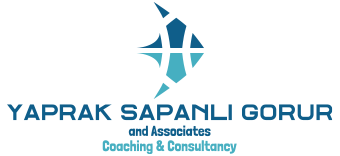Getting Out of the Comfort Zone
(2 min read)
“Too many people put in ‘face time’ They show up for work and think that’s good enough. So many even believe that they’re working hard” – Judith M. Bardwick.
For many years I’ve provided career advice on many platforms. I participated in panel discussions about career, Women Leadership Forums (WLF) or Lean-In circles as a speaker; I traveled across the world and have been into many subsidiaries in Latin America, Asia, Great China, West Europe, and Central East Europe. I talked about “What is the recipe for success? What to do and what not to do for career progression?”.
I generally provide the top career advice to “get out of your comfort zone” and “stretch yourself.”
Why is it important to get out of the comfort zone?
The risk of being too long in a comfort zone is getting complacent. It may lead to getting disrupted. It may lead to a lack of engagement, low energy levels, and loss of curiosity, resulting in lower productivity levels.
Danger Zone
On the other hand, getting out of the comfort zone “too frequently” may result in being in the danger zone or “being burned out.” Being too long in this zone may also result in increased stress levels, consuming energy, reduced productivity, less initiative-taking, and loss of creative thinking.
In the fast-paced world that we live in, many people are running so fast that they feel the need to slow down in the end. So people are seeking ways to slow down. That is one of the reasons why ‘mindfulness’ and ‘living a balanced life have become the top trends.
So, what does it mean – getting out of a comfort zone?
It means;
- Finding ways and approaches to continue to develop and stretch yourself
- Following trends and the competition
- Taking calculated risks and being committed to the success
- Having a different perspective and not being afraid to speak up
- Undertaking new responsibilities that will provide a fresh new perspective
And most importantly, allow yourself the ‘time to learn and finish what you started.’
“According to the “Zeigarnik Effect,” people will likely remember tasks that are not complete than those that are. The brain wants to finish the job that it has started. If it is not complete, then it gets stuck. This outcome results in feeling not fulfilled. More to read : (https://codeblab.com/wp-content/uploads/2009/12/On-Finished-and-Unfinished-Tasks.pdf)
Now, if you step one step back and observe your life, what do you see? What are the possibilities? What is it that is holding you back from taking action? Whose support do you need? Five years from today, what would you regret that you have not done today? If you become your self competitor, how would you disrupt yourself?
One of the best pieces of advice that I had ever received was from my father. At that time, I was offered a job in the US. Unfortunately, this job required my family and me to relocate to another country. So, I asked for his advice. He told me: “When you come to my age and reflect on your life, you’ll only regret the things you have not done, not the things you have done. If this is something you’ll regret, then do it“.
The story reminds me of the famous quote from Mark Twain: “Twenty years from now, you will be more disappointed by the things that you don’t do than by the ones you did do. So, throw off the bowlines. Sail away from the safe harbor. Catch the trade winds in your sails. Explore. Dream. Discover.”


